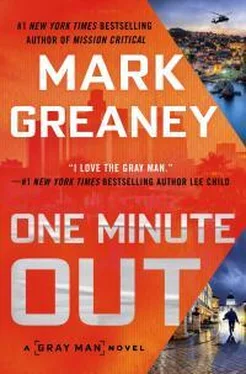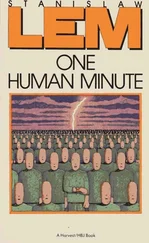I widen my eyes and zoom in on the group.
Instantly fresh adrenaline begins rushing through me. There are women in the cluster, seven or eight of them, and they are all bracketed by men carrying rifles. Someone in front of the pack is using a weak flashlight beam to help everyone navigate the way through the foliage on the hillside, and to safely get around the grown-over broken concrete strewn all around the hill, wreckage given off by the building when bombs were dropped on it during Croatia’s war with the Bosnian Muslims.
The women and girls aren’t tied or being held at gunpoint, they’re just walking along. Around them armed men continue shepherding them towards the water.
These have to be women from the farmhouse in Mostar. No . . . of course they don’t have to be, but I really want them to be. But why are there only eight women here, if I saw something like twenty-five in the cellar? I ask myself this question, but the answer comes quickly when I see a rigid-hull inflatable Zodiac boat motor up to the platform and a man on board throw a line to the individual with the flashlight.
The Zodiac is larger than a dinghy, but only big enough for ten or so.
I understand what is happening. The Albanians are bringing the women down to the shore in groups so that a tender can take them out to a mother ship before returning again to shore for the next batch.
These are the kidnap victims from Mostar, I feel certain of it now. I’m happy I found the prisoners, happier still that they are alive, but I don’t really know what I can do for them right now.
I count something like ten men in view dotted over the dark hillside and imagine there are more I can’t see.
I, on the other hand? I’ve got a dirty pistol with a couple of magazines, a knife, a beaten-up and exhausted body, and a bad attitude.
And that’s not going to be enough.
No . . . I can’t save the women now, and in this low moment I wonder if I came all this way just to watch them sail off into oblivion.
Shaking the thought from my head, I tell myself that my objective tonight is to find out what boat they board and which direction they sail. I’ll figure out the next stage of my operation after that.
I scan back out to sea, look over every vessel I can find. A tanker is darkened a mile or so out; several fishing trawlers are closer to shore, moored or anchored in the bay here.
There is a well-lit yacht just outside the mouth of the bay, partially hidden from my vantage point by a tiny island a couple hundred yards offshore. I can’t even tell how big the vessel is because it’s hard to judge distance and size over water, especially at night, but from here it looks massive.
I’ve heard of human smuggling taking place in this part of the world, and the stories often include speedboats that race immigrants across the narrow Adriatic Sea to some town on the eastern coast of Italy, Bari or San Marino being the largest.
But this big motor yacht hardly looks sufficiently inconspicuous to traffic sex slaves to the West.
Scanning back around the overgrown property while the Zodiac loads up, I focus on the blown-out windows of the building in the center. There are multiple points of light on the top floor now. I take them for flashlights, as the intensity increases and decreases randomly, presumably as the devices are moved around.
The remaining women could be held there, but it doesn’t really matter, because there’s not a damn thing I can do from up here.
The first group is placed in the tender along with two of the armed men, and they begin motoring out into the bay. After just a couple of minutes the clouds cover the moon again, and the tender disappears from view, right before it rounds the little island.
Much to my surprise, I’m pretty sure now it’s heading for the yacht.
I back up on the floor of the new construction until I know I’m out of sight of anyone down the hill, and then I grab my gear, sling it all onto my back, and begin running for the staircase.
I’ve got to get a better look at that yacht, and I can only do so by finding another position to the north of here.
TWENTY-THREE
Roxana Vaduva sat on the inflatable sidewall of the tender, feeling it bounce gently while it motored through the early-morning darkness. She peered ahead, looking for some sort of clue as to where she was being taken, but she couldn’t see any obvious destination.
She’d been in the second of three groups of women taken down to the shore and placed on the inflatable boat. Her placement had not been arbitrary; on the third floor of the bombed-out warehouse, a man with what Roxana took to be a South African accent walked up to her, shined a light on her face, and told her she was to move with the second group.
The other women and girls took her continued special treatment to mean she was the insider that one of the women claimed to have been warned about by the Serbian guard. Roxana wasn’t a plant, and of course she knew this. But she also realized tonight, for the first time in this ordeal, that she wasn’t just another one of the girls. She had a feeling she understood exactly why she was receiving special treatment.
It was only when they rounded the little island and she looked out to the southwest, nearly a kilometer in the distance, that she saw the yacht, well lit and dead ahead. The island had shielded her view before, but now she found the vessel before her magnificent.
As they approached the stern, she caught a glimpse of the name of the boat she was being delivered to. La Primarosa.
The tender pulled up alongside the yacht and a ladder was lowered, a line was tossed up to a man on deck, and the women were offloaded. Roxana was still climbing onto the main deck behind the others as the little boat with the inflatable hull turned away and began heading back to shore.
When the eight women in the group stood on the deck, they found themselves temporarily dazzled by the lights, and they squinted and held their hands to their eyes.
Roxana fought through the glare and looked around. It was a stunning vessel, unlike anything she’d ever seen. A teak deck polished to a soft glow. Glistening wood and brass, high-end electronics in the main saloon, and eight or so smartly dressed deck crew and interior staff members standing shoulder to shoulder near the entrance to the saloon. Several more men, all young, bearded, and wearing black polos and gray trousers, stood along the deck railing facing the saloon. Most had rifles around their necks.
These were the guards, Roxana knew, but to her this group looked different than the Albanians, and even more different than the South Africans she’d seen in the warehouse. They were all dark complected and tan, and her first impression was that they might be Greek.
The men looked straight ahead, which surprised Roxana. All the men along this pipeline she had seen had looked the girls up and down as if they were property, but these guards didn’t leer at all. She recognized that this crew was more professional than the Romanians, Serbians, and Albanians she had encountered in the past week.
Through the window into the saloon, Roxana saw an attractive woman in her forties wearing a black pantsuit rising confidently out of the spiral staircase to the main deck. She then walked out of the saloon and over to the new arrivals. She spoke to the group in English with what Maja took for an American accent. “Ladies. Welcome. My name is Claudia. We understand the first part of your journey was arduous, but we hope to make your time on board with us unforgettable. Now, if you’ll follow me, I’ll show you to your quarters.”
The stunned women followed Claudia back down the spiral staircase into the belly of the large vessel. In a corridor wide enough for two to move abreast, they passed another pair of suited men in their twenties with submachine guns on their chests.
Читать дальше












